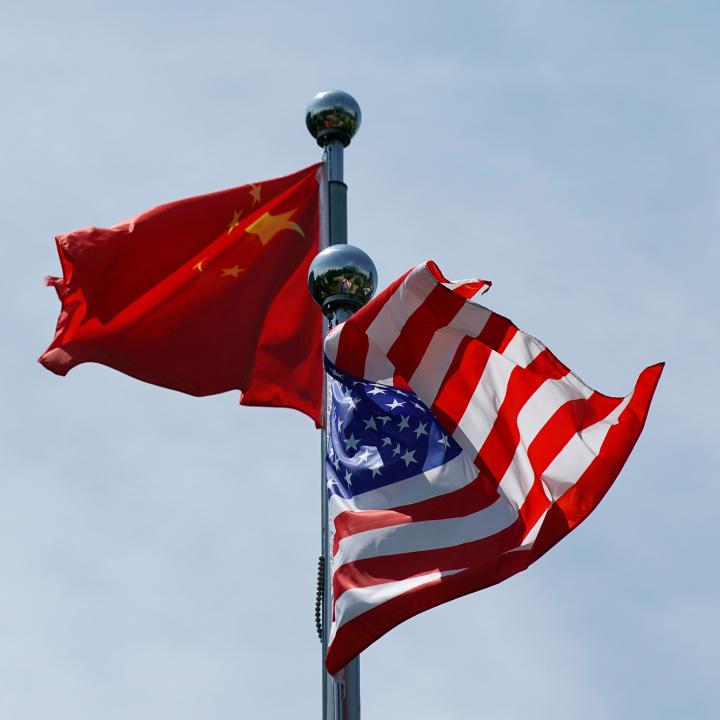
- Policy Analysis
- Articles & Op-Eds
What to Make of China’s Moves in the Middle East
Also published in ChinaFile

Beijing doesn’t care that its “Palestinian unity” agreement is a nonstarter or that a Hamas victory would undermine Chinese interests in stabilizing the Middle East—it just wants the United States to lose.
Viewed from the West, it is easy to ascribe Chinese enthusiasm for the so-called “Beijing Declaration” between Hamas and Fatah to simple naivete. After all, while these two Palestinian factions have long paid lip service to the idea of Palestinian unity, in reality they are bitter enemies who espouse mutually exclusive approaches to the achievement of Palestinian political aspirations. The war in Gaza and accompanying tension and violence in the West Bank has perhaps led the two factions into something of a truce, but it has done nothing to ease the underlying opposition between them—indeed, Fatah officials bitterly complain that the egotism and extremism of Hamas leaders has brought ruin upon Palestinians.
Yet it would be a mistake to view Palestinian reconciliation as Beijing’s true aim. There are three motivations for Beijing’s sudden emphasis on the war in Gaza and on Palestinian politics. Two are longstanding.
First, China has long sought to position itself as the champion and leader of the so-called “Global South.” Beijing has traveled a great distance on the Israeli-Palestinian issue, from actively supporting Palestinian factions during the Cold War to cultivating close security and economic relations with Israel from the 1980s to 2010s, yet it has never totally abandoned the former impulse.
Second, as it has grown in global prominence, China has sought to make a show of diplomatic activity on major diplomatic issues like the Israeli-Palestinian conflict in order to underscore its own importance. To that end, Beijing has dispatched envoys to the region and hosted delegations from it, and has even released multiple self-styled plans for Israeli-Palestinian peace. While the plans largely consisted of vague invocations of conventional diplomatic wisdom, it was their promulgation rather than their content that was significant.
However, a third, newer, and more troubling motivation is also apparent in Beijing’s actions since the October 7, 2023 Hamas attack on Israel. Chinese officials and analysts have quickly pivoted from a relatively pro-Israel footing to not just indulging criticisms of Israeli government policy, but permitting the spread of antisemitism in Chinese social and broadcast media. This appears to reflect not a newfound concern for Palestinian aspirations, but an effort by Beijing to use conflicts, whether in Ukraine, Gaza, or elsewhere, to rally global public opinion against the United States, even at the cost of sacrificing relationships—like those with both Israel and Ukraine—that it spent decades cultivating.
Yan Xuetong, dean of the Institute of International Relations at Tsinghua University, put it this way: “The Israel-Gaza war will reduce the global political influence of the United States. This is already very obvious, because even its allies have to distance themselves from it on this issue...As the US’ strategic relations with other major powers will be undermined, the strategic balance between China and the US will become less favourable to the US.” That Palestinian unity is unrealistic, or that Hamas rule would not serve the stability in the Middle East that China desires, is ultimately beside the point. What matters is that if the United States loses, Beijing—in this view of the world—wins.
Michael Singh is the managing director and Lane-Swig Senior Fellow at The Washington Institute. For more on these issues, see the Institute’s Diane and Guilford Glazer Foundation Program on Great Power Competition and the Middle East. This article was originally published on the ChinaFile website.

